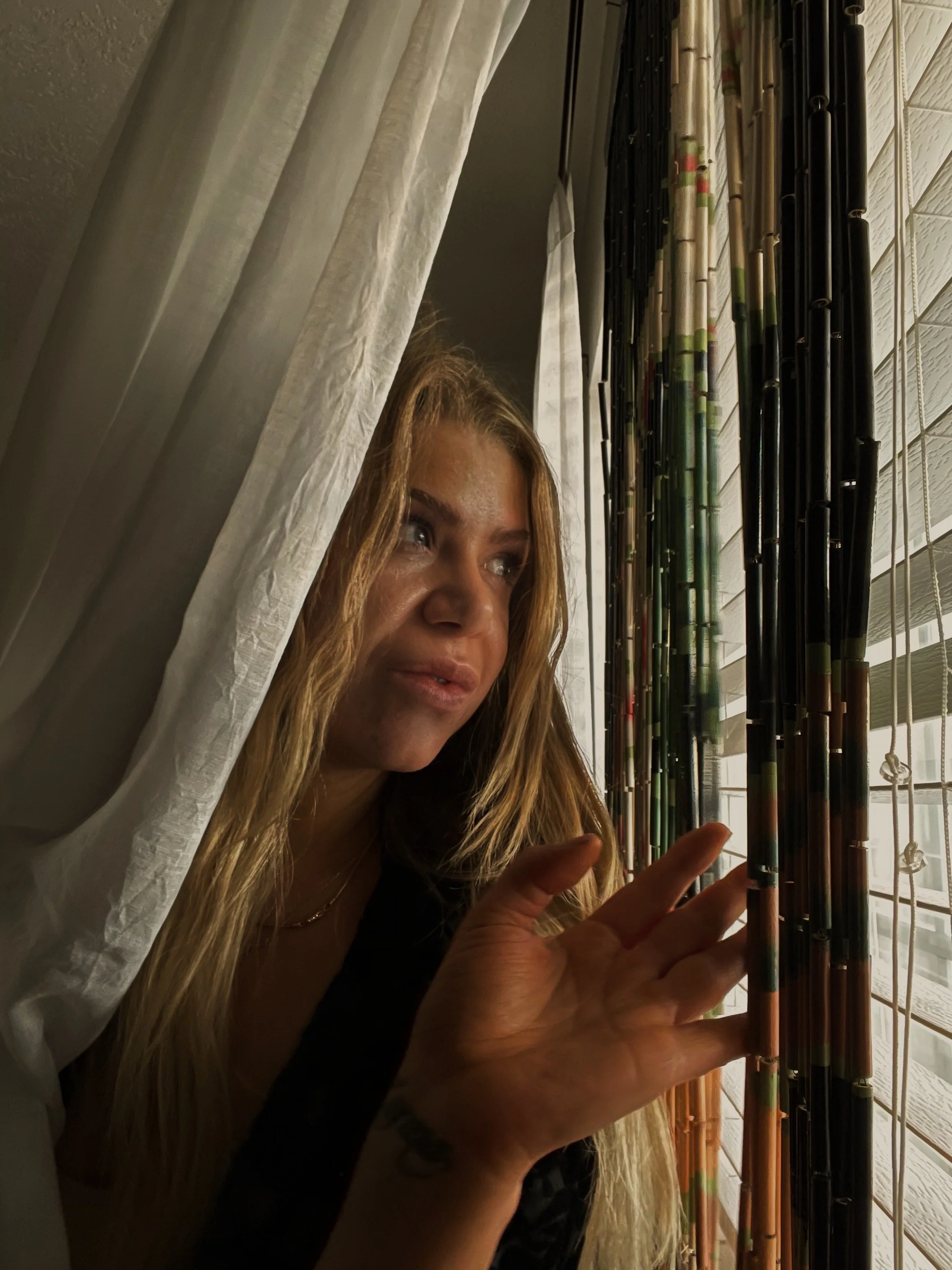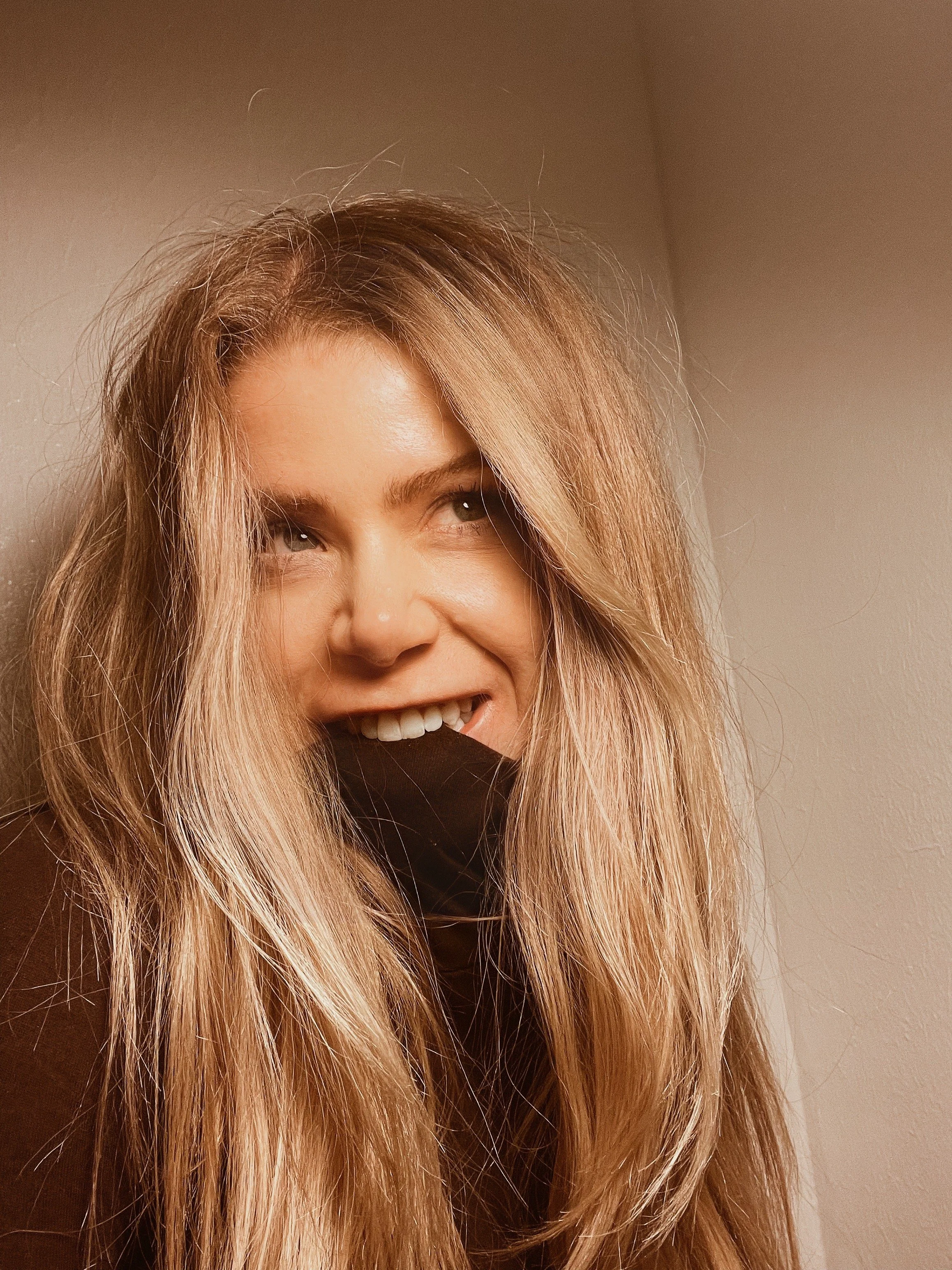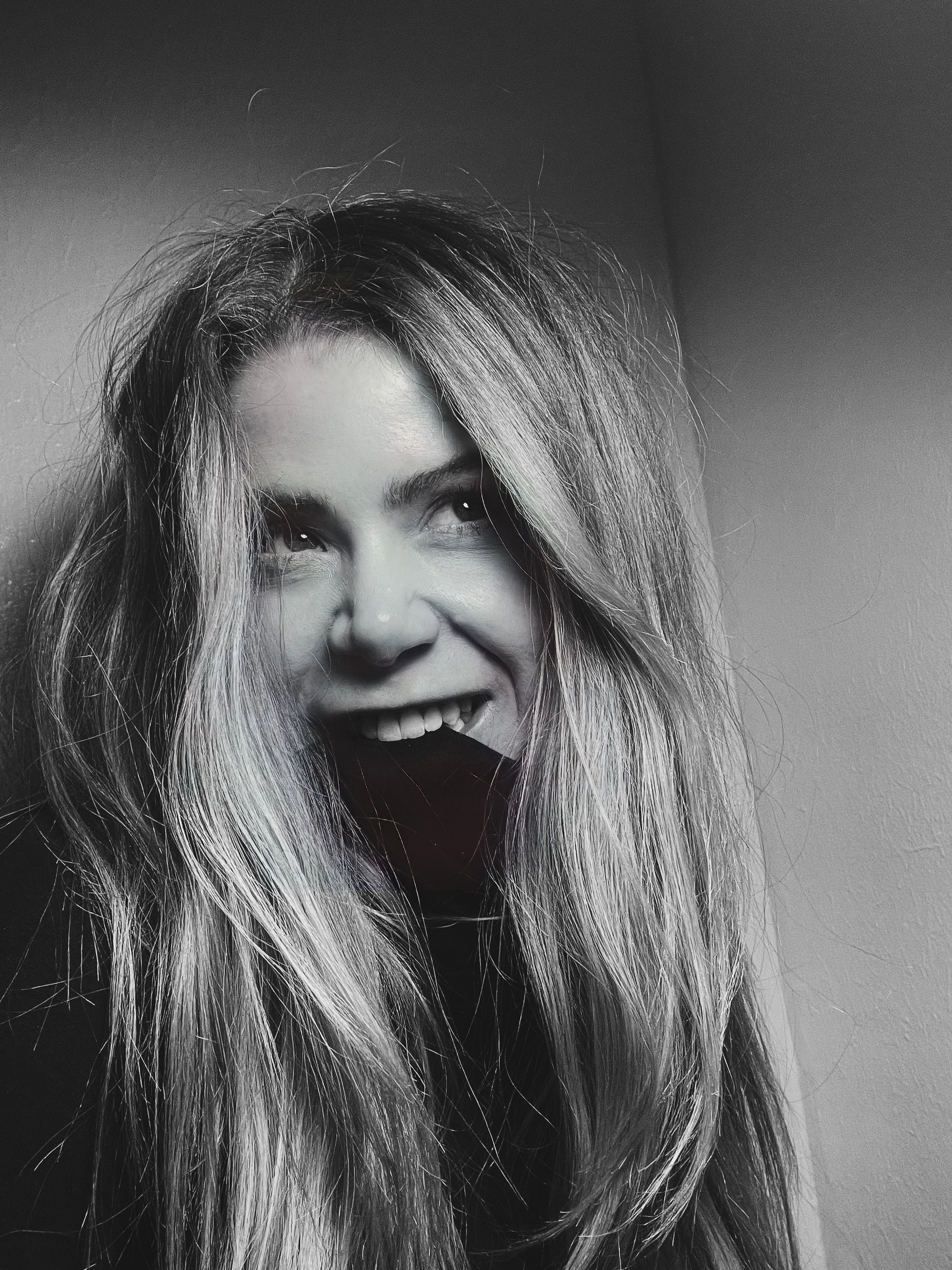Losing Faith: Leaving the Mormon Church
It’s here. Finally.
I share my story on joining - then leaving - the Latter-Day-Saint (Mormon) Church, and how I feel about it now. I offer questions to consider, no matter your personal beliefs.
I hope you listen - and live - with open eyes, open hearts, and open minds.
I love you.
The Brené Brown podcast episode I reference is from April 20 and April 27 (it’s a two-parter): Brené Brown with Father Richard Rohr on Spirituality, Certitude, and Infinite Love, Part 1 and 2
Connect with me on Facebook and Instagram: @the_nativist
The World As It Is
Find the full transcript below.
Oof. I literally typed that and then put my head in my hands. There’s a lot of heaviness in the world today (not unlike other times - let’s respect where we as humans have been in our history!). For anyone consuming this content in the future (or in the present with no access to the outside world), it’s March 2022 and Russia just invaded Ukraine. An important point right upfront (a point that is relevant to much of my further remarks), this is not a sneak attack. This is not a shocker. We’ve known this was possible - not just for the past few weeks as Russia incrementally made moves toward it, but also for the past YEARS. Vladimir Putin - the leader of Russia - may be a lot of things, but one thing he is not is shy with his ambition and his goals. As important as Americans think we are, Putin is not the product of America. We did not create him. We may be a global superpower that influences the world balance, but believe it or not, we are not the only power in the world, and we are not at the center of every story. Thinking we are is a very American-centric view. Yes, we are a part of this story, but let’s not center ourselves, especially not to just blame this all on one president/administration. A pretty solid life truth is none of us live in a vacuum. This may surprise you, but “none of us” also includes US presidents. There are many elements inside and outside their orbit, impacting decisions and outcomes. I posted awhile ago on how US presidents actually have a far smaller effect on the economy than is often said (and I cited multiple studies and articles from various sources - conservative, liberal, and neutral - showing this). This means they can’t fully claim all of the economic wins or losses during their tenure (or immediately before/after). (PS this includes oil and gas prices.) Let’s keep this point in mind as we start talking about the cancer in this country that’s making all of this worse: division.
While division rapidly metastasizes and spreads and corrodes and impairs and harms and chokes and kills like cancer, there is a key difference: its relation to us, its spreaders. It can be said if someone has cancer, that cancer happened “to” them. Not so with this division taking over our politics, our news, our relationships, our empathy, our understanding, our humanity, our WORLD. WE are causing the division. WE are society. If we’re not actively uniting and repairing, then we’re dividing. We’re perpetuating the strength and velocity of the cancer. If we’re not uniting, we’re dividing - no matter how “passive” or “active” we are. Let’s face it. And this division we’re causing is a glaring vulnerability that can and will be exploited by those with ill intent - like Putin. When we divide ourselves, we’re aiding and abetting his efforts to do so. We’re doing his job FOR him. We’re helping him bring our downfall. And has history has shown us, the great can and do fall (think Ottoman Empire, Roman Empire, etc). Thinking we can’t is another vulnerability. It’s unwise and dangerous.
“If we’re not uniting, we’re dividing - no matter how “passive” or “active” we are. ”
We also help him divide and harm us by irresponsibly consuming/sharing content, in person or online. Misinformation abounds. There are credible, trustworthy news sources (and they’re not Twitter or Facebook), but let’s remember: much of media is business. How do you survive as a business? You make money. How do you make money, particularly as a media entity or social media influencer? You capture attention. How do you capture attention? You sensationalize, you shock and awe, you scare, you unsettle - by posting easily digestible sound bites, no matter (even especially) if they’re misleading. And it’s not just massive media corporations who cloud and mislead: it’s also people who want to make a point, further an agenda, sow discord, etc. Maybe that person is you, whether you realize it or not (depending on what you post and how/if you verify it). Again, you may not even realize it. I’ve seen/heard of videos using footage from other places/times, and presenting it as footage of Ukraine. Let’s beware of how easy it is to say/do/create anything.
So back to the life truth of we don’t live in a vacuum. There are many factors at play and ingredients in the mix. That can be comforting, and that can be unsettling. Russia being, you know - a part of the world - also does not exist in a vacuum, especially a vacuum confined to the first year of this current US administration, or even to the last few years (to include the last administration). Just as the US has its own origin story and thing going on, so does Russia. Sure, our stories include each other, and sure, we’ve had a big impact on each other (realizing this is especially vital in self-assessing our faults and missteps), but let’s not be so arrogant as to think we - or more specifically a certain US president/political party - solely created this current situation.
Let’s be clear: This is NOT an argument for/against action/inaction with this invasion of Ukraine. Let’s resist our desperate urge to politicize every friggin’ thing. If you do, you’re missing the point of this entire post/episode - and you’re part of the problem (I say that with love). But enough. I lovingly but firmly say enough.
I feel frustrated, despairing, disappointed, and upset when I see people post passive-aggressively (or even outright aggressively) how “elections have consequences,” indicating this is President Biden’s fault. Again, this current world situation did not pop up out of nowhere, a direct (and only) result of US action/inaction. To think so is a very reductive, inaccurate, divisive, and dangerous judgment. It’s simply not so. It’s also not from one ideology/political party. Again, so many factors to consider here: past international relations, current international relations, future international relations, economic strength, resources, political expediency, political support, optics, bureaucratic elements, fickle public opinion, allies, ripple effect, Russia’s backstory, consequences of past international interventions, waning appetite for more US interventions (especially after Afghanistan), Russian politics, differences in personal opinions and judgments, conflicting ideologies, etc. SO MUCH IN THE MIX. Made even more exhausting and overwhelming and messy by oversimplification: in the media, in political rallies, in personal conversations, in social media posts, in misleading (but appealing) sound bites. Clickbait. Sure to entice anger, blame, and division; sure to cloud nuance and reality.
“I believe everyone deserves a baseline level of respect, simply for being human. Everyone. ”
It’s easier to simplify and finger point; it’s harder to assess and consider. It’s easier to feel superior by judging, blaming, and condemning. It’s much harder to resist reacting, to research what you see/hear, to consider multiple angles, to empathize (this doesn’t mean condone), and to stay open and respectful. Speaking of being respectful, one of THE most disheartening things to me is seeing people launch personal attacks against people with whom they disagree. I don’t care who you are or whom you’re against, it’s never ok to name call. It’s never ok to say cruel things against someone we dislike. I believe everyone deserves a baseline level of respect, simply for being human. Everyone.
A personal attack is the biggest tell of a weak argument. This includes attacks against politicians. Making fun of Trump’s hair or Biden’s stutter - MEAN. Immature. And much more revealing of the person saying it than the person they’re criticizing. Same goes for the, “Let’s go Brandon.” To me, this has nothing to do with my political beliefs; this is a matter of humanity and decency. (I don’t identify with either party anyway - I’m a firm centrist.) This also goes for how we interact with each other, especially those with whom we don’t see eye to eye. The minute you go after someone’s character and start lobbing insults is the minute you’ve ceded ground. I have patience for people I don’t agree with (I’ll admit - it can be tough, especially on issues I deem fundamental to humanity), but I have no tolerance for cruelty and disrespect. This doesn’t mean we can’t get fired up, we can’t get angry, we can’t express frustration. We can and should. That’s healthy, but only if we imbue it all with respect: for ourselves and others, and for our world. Let’s be humble enough to know we don’t know everything. Think about this: There’s something you’re convinced of now that you’re almost certainly wrong about; same with me. I don’t know it all, and neither do you. So why would we NOT listen to each other? Well, I do know why not: ego, insecurities, fears, shame, etc. It can be tough being human, yeah? I know I get it wrong all the time. I preach often about responding rather than reacting, but that’s actually really challenging for me. It’s something I’m continually working on (but I’m proud of myself for always trying, no matter how many times I fall). Let’s give each other and ourselves tough love and also grace.
Getting back to Russia. Okay, so international relations is a topic I’ve long studied: it was my focus in grad school (for undergrad, I majored in political science and minored in psychology). It’s also a direct part of my life. I’m constantly consuming content on it, related to the past, present, and future. And if you do the same, you likely know: It’s friggin’ complicated. I mean, let’s put it in perspective: think of your own life. Like we just said, being a human can be tough stuff. It’s challenging and conflicting; it can be contradictory and messy and confusing and and and… There are countless elements at play, countless contributing factors. You’re a human. You know. You’re a multi-dimensional person, with many parts to your identity. And you’re one person. Let’s add another, and now we have a relationship/partnership: romantic/personal/professional. That can be REALLY friggin’ hard, right? More edges to bump up against, more issues to sort out, more perspectives to consider, more more more…everything. And that’s just with two people. So then if we add, you know, seven billion more, that can be as my niece likes to say, “kinda tricky.” Now add in disparate cultures, worldview, ideologies, histories, physicalities, geopolitics, etc. Holy COMPLICATED. Think of all of the competing egos, agendas, fears, insecurities, ambitions, motivations.
“You’re a multi-dimensional person, with many parts to your identity. As are others.”
Psychology, meet politics. Politics, meet psychology. I’ll read a caption I posted about a year ago: “Where psychology meets politics. Politics and psychology are top areas of interest for me. Here’s why they matter: Our world consists of people. People who inhabit towns/cities/countries ruled by…people. People like us who have physical needs, emotional needs. People who have ambitions and wounds. Biases. Fears and insecurities. Fears and insecurities are powerful. They cloud judgment at best and corrupt hearts at worst. They cause countries to invade others. They cause humans to exploit others. They affect how leaders lead and people vote. They influence how people view issues, individuals, and groups. They shape how and what systems form. (I’ll add here: They affect what information people share/consume, and how they perceive information and thereby reality.) Fears and insecurities close people off to different perspectives, innovation, compassion, and respect. They start wars and oppress people. They cause inefficiency and destruction. A leader fueled by fears and insecurities is inept at best and ruinous at worst. Just look at history (and modern day - Putin, we’re looking at you). And talk about a ripple effect: psychological issues played out on a global scale can be catastrophic, with effects lingering for centuries. Psychology informs politics, which is another reason why shadow work is so important: identifying and healing your wounds; illuminating your blind spots; facing your fears. Because it directly affects how voters vote, humans view, countries interact, and leaders lead.”
And I’ll add here, it’s also why how we raise our youth is so critical. I highly recommend the book The Body Keeps the Score by the brilliant Dr. Bessel van der Kolk, one of the world’s top experts on trauma. He’s spent over three decades working with trauma survivors. The book was published in 2014 and cites recent scientific advances to show how trauma literally reshapes both body and brain, compromising sufferers’ capacities for pleasure, engagement, self-control, and trust. And throughout, Dr. Van der Kolk emphasizes the importance of applying these lessons to our youth and ensuring they’re raised in stable, supportive environments, contending that is the best way to improve our society and heal our ills.
Let’s think of how all of this applies to world leaders like Putin. Let’s consider Vladimir Putin, the human being. Let’s allow room for nuance, for humanity, for complexity. Let’s acknowledge he wasn’t created in a vacuum or a lab. Just like you and just like me, he is a human, with fears, needs, desires, insecurities, bangs, and bruises. Just like you and me he’s had disappointments and struggles. Just like you and me, he is the way he is for a reason. Just like you and me, he’s trying to annex Ukraine and take over the wor— Oh wait, that’s just him (well, I’m sure world domination is on the vision board for more than just Putin, but for focus and time’s sake, let’s concentrate on Putin). Why would we - why should we - empathize with Putin? What value does that bring? Well, from a purely pragmatic, strategic, and tactical respect, that helps us stop/deter him. How can you beat someone if you don’t understand them? If you don’t know what motivates them, what deters them, what scares them? Comprehension is just one step, sure, but it’s a vital, pivotal step. And from a humanity perspective, it’s important for our individual and collective soul to see how connected and similar we are; how nuanced and complex we all are. It’s imperative we see we all have the same basic physical and emotional needs. Insert Maslow’s hierarchy of needs: an idea of psychology explaining humans are motivated to fulfill their needs in a hierarchical order. This order starts with the most basic needs (food, shelter, water, security) before moving on to more advanced needs (psychological needs such as belonging and love, esteem needs such as prestige and accomplishment, and self-fulfillment needs such as self-actualization and fulfillment of potential).
“From a humanity perspective, it’s important for our individual and collective soul to see how connected and similar we are; how nuanced and complex we all are. It’s imperative we see we all have the same basic physical and emotional needs.”
That’s why the movie The Joker is so powerful. Or the Netflix documentary Manhunt, which provides a heartbreaking in-depth look at the various forces that shaped Unabomber Ted Kaczynski and led him to mail bombs to fellow humans. I just read All the Light We Cannot See, a haunting book by Anthony Doerr that won the 2015 Pulitzer Prize for Fiction (fun fact: Doerr lives in Boise, Idaho!). World War II non-fiction and historical fiction books have been my favorite to read, and I’ve read - MANY - since elementary school. This was I think the first one that actually humanized the Nazis. Important distinction: it didn’t condone or glorify Nazism and fascism - quite the opposite - but it offered a valuable look into what various factors could lead someone to engage in such an abhorrent movement, and do unspeakable things. It showed how sometimes in life we must make seemingly impossible decisions. I mean, think about it: It’s wartime, you’re a young parent and are solely responsible for your babies’ lives. You’re asked to risk your babies’ lives by hiding strangers in your attic, and/or participating in the resistance. It’s easy to sit far removed, in time and place, from such terror and uncertainty, and coolly calculate the numbers, the socially-acceptable answers, the popular opinion, the _____ judgment. But when you’re in it, I highly doubt you’d have the same presence of mind.
I ask such horrible questions in my “Would you rather…” questions every Wednesday on social media, not just for fun, but to highlight and respect the complexity of humanity, and to connect you to yourself and others. This helps us understand how things can’t and shouldn’t necessarily be reduced to good vs. bad, right vs. wrong. We need to allow for nuance and diversity of thought. We don’t all share the same values, experiences, strengths and weaknesses, advantages, disadvantages (our divided politics make that abundantly clear). We’re so similar, but we’re also so different. And understanding and empathizing with each other, showing each other compassion, does not mean we condone unacceptable behavior. Not at all. We must own our lives and our actions; we must be held accountable; we must hold each other accountable (ideally with respect).
This doesn’t mean we go soft on people who act egregiously. Nah. A simple hug and “I understand” will not stop a serial killer (or Putin). But understanding the problem, the pathology, the contributing factors - that’s responding intelligently, not reacting ineffectively. This shouldn’t be confused with softness or negligence. Not in the least. But mental health issues directly contribute to much of the criminal behavior. Understanding helps us respond effectively. Understanding helps us prevent it from happening again. Understanding helps us improve. Why not start at the grassroots level?
“Understanding the problem, the pathology, the contributing factors - that’s responding intelligently, not reacting ineffectively.”
It starts with us. It starts with you, with me. Society is made up of you and me. The world is made up of you and me. This is the driving force behind The Nativist: to connect you to yourself, and to connect you to others. To give you support, space, and inspiration to dig in to your shadows, your fears and insecurities, your values and motivations. This is how you change the world. When people don’t do this, their shiz bleeds over onto others. When people don’t do this, they start fights, they perpetuate conflict, they feed discord, they widen division - they INVADE UKRAINE, they gas their own citizens, they commit other atrocities. When we do the work ourselves and face our own shame and uncomfortable parts, then we can understand and relate to others, and show them grace. We can recognize our common struggles, wants, needs. Our humanity.
And again, all of this isn’t to say there’s no need for might and force. I’m not arguing that. I’m not advocating violence, but I’m also not so naive to think there is no need for militaries. In an ideal world, we would all do our shadow work and accept our common humanity. That’s unfortunately not how our current world works. I’ll leave it there.
Speaking of punitive measures, yes, it could be argued we should have been tougher on Russia. Yes, it could be argued we should have ______. But again, it’s also important to remember there are various factors to consider, like I listed before (our current economy and resources; consequences from past international interventions; Congressional support; political pressure; etc). Could Biden have done better? Possibly. I’m not arguing for/against him. Just like I’m not arguing for/against Trump. Both presidents have erred (humans err, to various degrees, to which I’m sure you personally can attest). I think it’s important to consider what drives their errors.
Putin didn’t radically transform into an evil power-hungry player the minute Biden was sworn into office. Russia didn’t suddenly become a threat out of nowhere. Let’s also look at past administrations (Cold War ring a bell?), and geopolitics in Russia and Ukraine. We’re wasting time, energy, and bandwidth by playing this immature blame game; by focusing on “But he started it” and “I know you are but what am I?” It never ceases to amaze me how politics (and social media and much media in general) can resemble playground antics. ENOUGH. For those of you saying Biden should’ve been tougher on Russia, where were you when Trump was particularly friendly to Russia in the past (again, Putin’s aspirations of domination have long been known). Where were you when Trump literally and openly called these latest attacks on Ukraine “genius” and “savvy”? For those of you deflecting blame from Biden, would you do the same if Trump took exactly the same approach?
Can you separate the person from the criticism? Can you prioritize objectivity? Can you identify your biases (we all have them)? Hypocrisy is rampant, and I’m beyond sick of it. Double standards abound. This isn’t just in Congress and in the media - it’s also in private conversations and social media posts. It’s everywhere. What’s one person’s protest is another’s riot. What’s one person’s financial savvy is another’s delinquency. Government, get out of my life - unless you’re regulating ______ to make my life easier . This goes for BOTH liberals and conservatives. BOTH have become extreme. Both were/are hypocritical. Both have focused not on what’s best for the country and its people, but on what’s best for the specific party and its power. Party preservation is the name of the game, truth and citizens and collective good be damned. (We allow/encourage this by whom we support, what we click on and read, and what we share and fund.) Ideologies, political parties, and politicians need our support to exist. Our views are too often shaped/swayed by incomplete (and even outright false) snippets and opinion pieces in the media. Since ideologies/parties/politicians require our support, then actions are based less on reality, and more on what we, the supporters, think reality is.
“Since ideologies/parties/politicians require our support, then actions are based less on reality, and more on what we, the supporters, think reality is. ”
Here’s a question for you I hope you fully and honestly reflect on. I invite you to sit with a moment, and notice any resistance. If your immediate response is “Absolutely not”. then that’s a sign you may need to dig deeper. Here it is: Are you more sympathetic toward certain victims? Toward certain refugees? Here’s where it can really get dicey and make you uncomfortable, but this is a key question, so thank you for staying with me: Are you more sympathetic toward those from a certain demographic/background? Possibly those who more closely resemble you, or fit a certain worldview? For example, are you more sympathetic toward Ukrainian refugees than Syrian refugees? Or Mexican immigrants? Thank you for caring enough to listen and think about this.
Some more questions, while we’re on the topic: Do you believe you chose where you were born, and into what circumstances? Do you think you would do whatever it takes to ensure your family’s safety? Your safety? Imagine living in terrifying or deplorable conditions, where you fear for your life, or don’t have basic necessities, like safe/sufficient food/water/shelter/security. Imagine raising kids in such a situation, innocent souls dependent upon you for survival. Imagine having no legal recourse, no authorities or official channels you can trust or use for help. What would you do? How are you different from them? I’m honestly asking, with sincere curiosity (though I realize we’re not talking face to face): What if you had the option to flee for safety, for opportunity, for survival? Would you be compelled to honor invisible national borders, simply because you were born outside of them? Because your children aren’t of a certain nationality? Or would you do everything freaking possible, whether you’re fleeing a dangerous dictator, a war-torn country, a corrupt regime, a tanked economy? Whether you’re a mother in Mexico, a human in Honduras, a sister in Syria, an under-attack in Ukraine? Let’s be clear: I’m not advocating for/against a certain policy, but I am asking you to reflect on how and with whom you sympathize, and on what you would do in parallel situations. It’s tough to level with ourselves - it really is. But it’s how we get better, and heal the world.
Speaking of tough stuff: Let’s also acknowledge how challenging it’d be to be president - so much on the line, so much to consider, so many entities involved. Yes, they volunteer for it and take it on, and yes, critiquing them is healthy and necessary for progress and accountability, but that doesn’t mean we should ignore/dismiss the colossal toughness of the job. And the factors and information we don’t have that they do, that affects their decisions.
Let’s also again acknowledge a very uncomfortable truth: America is not bulletproof. Declaring ourselves invincible is tricky: what we gain in national resolve and pride, we lose in self-awareness and humility. And we’re still relatively young. Past great empires have fallen, empires that were bigger than the US and around for longer. So let’s stay humble, let’s stay aware, and let’s stay respectful: of our challenges and our adversaries (it could even be argued we are our own biggest threat).
“So let’s stay humble, let’s stay aware, and let’s stay respectful: of our challenges and our adversaries (it could even be argued we are our own biggest threat). ”
Public policy can only do so much. Legislation can only do so much. Government can only do so much. They definitely have a role to play, but shouldn’t have the leading role in our lives. They can’t fix us or our situation, and hopefully we’re not relying on them to. This is NOT an argument on big government vs. small government. Governmental policies and laws can do good and provide value - but can’t fix the root causes. Laws are made by people: people with fears, insecurities, and biases - people we elect (driven by our own fears, insecurities, and biases).
We constantly hear/participate in debates on the best policies or laws we need to resolve our societal issues. It’s like expecting a therapist to solve your problems. They can give invaluable structure and assistance, but can’t do the inner work for you. Or it’s like counting on stretching to solve your hamstring problems. Sure, it can help - but it won’t cure it, or resolve the core issue, and it may even worsen it (if you’re doing it improperly, applying the wrong remedy, etc). You and I - we individually have choice, we have power, we have responsibility - and hopefully we also have compassion, curiosity, and care. Yes, people can work the system, but what factors drive that? Void, addiction, trauma, wage gap, capitalism, corporate greed. How can we address those voids? In ourselves/others? Individually/collectively? And how are you and I personally perpetuating the faulty system, intentionally or otherwise? We are society, remember?
“And how are you and I personally perpetuating the faulty system, intentionally or otherwise? We are society, remember?”
We’re creating the world we live in: how we interact with each other; what we consume and share; what we allow; whom we support; how we spend our time and money; what we focus on; what we think and say. It’s easy to project blame, it’s harder to accept it. It’s easy to cancel people for making mistakes, it’s harder to show grace, to allow for complexity, to engage, to understand. What if instead of calling out, we called in: to ourselves, and to others? Invited reflection. Accounted for where someone is now, rather than where they were? Allowed each other room for mistakes, but while addressing those mistakes? What if we left room for different perspectives, nurtured common ground instead of cultivated chasms? Think of our Founding Fathers. If we canceled them for owning slaves, does that mean we should cancel the Constitution? Disregard other good they’ve done? Ignore the context of their lives and actions? This does NOT mean we condone slavery (ABSOLUTELY FREAKING NOT) but context matters. Like it or not, we’re often products of our environment (hopefully we take accountability - but even so, we’re still deeply influenced). Think of when you’ve held mistaken beliefs, or screwed up. When we know better, we can do better. And what helps us know better is to removing those blocks to love, compassion, and growth, by doing shadow work, by connecting to ourselves and others, by approaching sticky issues openly rather than aggressively.. When we mess up (we all do), why would we cast somebody out, instead of engaging with them? Try to bridge that gap? I truly believe people aren’t good, people aren’t bad…people are people, who do good and bad things. People are complex. It may be an ego boost to pounce on somebody’s mistake and castigate them for it (privately or publicly). However, while the dopamine fades, the division remains. Yes, we should be accountable for when we do/say harmful things, but let’s also remember perspective; let’s also account for what led to the harmful words/action. Let’s consider the person behind it, and how that person feels about what they said/did. Sure, apologies and remorse may be performative - but time will tell. Are you perfect? Have you never said/done anything wrong or hurtful? I know I have - and unintentionally continue to do so. I still have work to do. We all do. As long as we’re alive. Let’s not let this discourage us, but encourage us. Because this (among many things) unites us (and we all know how desperately we need unity!). It means we’re still paying attention, and we still care.
Holy smokes. Am I long-winded or what?!! Bless you for lasting this long and hearing me out. Thank you from the bottom of my heart. I love you.
Make Yourself Uncomfortable: Sneaky Ways Comfort Is Limiting You
Allow me to be the most inhospitable podcast host ever and invite you to make yourself uncomfortable. I do so with love and in service of your individual good, and our collective good.
Life is messy. Life can feel tough. It’s complex and nuanced and uncertain, just like us humans. When we rush to restore comfort, we weaken ourselves, limit ourselves, and invite trouble. What kind of trouble? In what small/big ways are we denying ourselves a full, rich, fulfilling life? How are you possibly contributing to your problems and our problems? What are our possible blind spots? How can we lean into discomfort? Why is it good for us? What are you missing out on? I answer all of these questions in this short, micro episode. You might know some answers, you might be surprised by some answers. Only one way to find out… Listen if you want to be the best you can be.
The D Word
In this solo episode, I talk divorce in its broadest sense. Not just the dissolution of a marriage, but the “conscious uncoupling” (great term, Gwyneth Paltrow and Chris Martin!) from anything that no longer serves you: one-sided friendships, toxic habits, regressive thought patterns, unhealthy practices, stagnant jobs, outgrown partnerships, etc.
I suggest helpful questions to ask yourself to effectively approach and navigate the situation, and to help determine if a divorce is needed (again, divorce in the broadest sense).
I offer angles to consider and solid steps you can take (including a specific activity you can do) to [re]claim your power, promote your healing, and serve the highest good.
Mucho love to you all.
-w-
Showing Up for Yourself
This listener-requested episode offers insight and guidance on how to show up for yourself: what that looks like, what that requires, how that changes, etc. I also share personally-tested and science-supported tips on how I motivate and show up for myself.
The topic for this episode was requested by a listener, and what a hard-hitting topic it is, that encompasses so much. The full request was for motivation and showing up for yourself, and this episode covers both, since they’re closely related. This is especially relevant for me as I get back into podcasting. Podcasting elates and fulfills me, but I tend to resist what I know is good for me, and what I know will make me happy, as a form of self sabotage. As if I’m only comfortable when there’s some discomfort. I’m okay with a certain amount of success and wellbeing, but too much and I run scared. It throws me.
I’m progressively mastering navigating this. Knowing when to exercise discipline and push through, and when to grant grace and respite. It’s a journey.
Everybody is different. We’re all in different places on the balance spectrum, and require different lifestyles to balance us. We’re also motivated differently: some intrinsically, some extrinsically. Some derive fuel from the haters and doubters, some withdraw.
Self awareness is key: We need to reflect and do our shadow work and level with ourselves, to know what drives and motivates us, and to know when to use discipline, and when to use grace. To know where to step it up + venture out (literally/figuratively) and where to pump the brakes and ease up.
I share many of my self-motivating practices and life hacks, to light and maintain my fire. Some of these might surprise you.
Showing up for yourself varies not only interpersonally (among people), but also intrapersonally (with yourself). It’ll likely vary decade to decade, phase to phase, year to year, season to season, month to month, day to day, hour to hour, even minute to minute. Our values shift, our priorities change. Mine definitely have, (especially since COVID).
We’re growing, evolving (at least hopefully!) beings who don’t live in a vacuum. We don’t control others, and we don’t control what happens to us.
Being open to it all, accepting, and flowing with it is a main theme of my work. Attending to your ultimate good, and the highest good for all, won’t look the same now as it did before - for you or for anyone else.
That’s why it’s important to stay connected, especially with yourself. Again, self awareness is CRUCIAL. Powerful. Transformative. Identifying what motivates you. What lights you up. Dialing into why you’re doing what you’re doing, why you’re feeling what you’re feeling, what you need vs. what you think you need. If any wounds/insecurities are calling the shots. When you need to push through and when you need to pull back. When you should contract, when you should expand. When you should pivot and redirect, and when you should stay the course.
So tune into yourself. Get to know yourself Identify your thought patterns, particularly those based in fear. Understand why you do what you do and think what you think, to help you recognize when you’re being led by fear/trauma, and when you’re being led by intuition/wisdom. Practice separating from your thoughts, your mental narrative. Get comfortable dialing into your core, your true self, your inner wisdom. You know what you need. You always have, and you always will. It’s simply a matter of you holding space for yourself to acknowledge and honor your inner guidance.
I love you.








